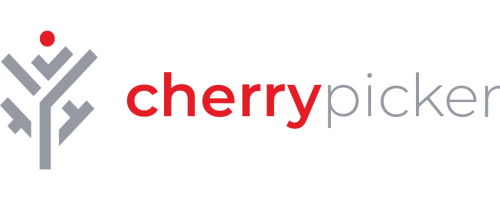How to Improve Reply Rates to Recruiting Emails
Why Reply Rates Matter More Than Ever
-
In a crowded hiring market, candidates receive dozens of outreach messages a week.
-
Open rates don’t get hires — replies do.
-
Low reply rates = wasted sourcing time, lower pipeline quality, and slower time-to-fill.
-
A good reply rate can double or triple recruiting efficiency.
The #1 Reason Candidates Don’t Reply: Lack of Relevance
-
Generic, spammy messages get ignored.
-
Candidates are savvy — if it looks automated or impersonal, they move on.
-
Personalization and timing are the biggest levers to increase reply rates.
Step 1 – Target the Right Candidates
-
Quality > quantity.
-
Focus on aligned skills, relevant experience, and mutual interest signals (e.g., tenure, tech stack, certifications).
-
Don’t rely only on title searches — look at context.
-
Example: Recruiters contacting tax accountants during busy season will get lower replies.
Step 2 – Personalize (Without Writing 100 Unique Emails)
-
Personalization doesn’t mean rewriting everything. It means showing you did your homework.
-
High-impact personalization fields:
-
First name
-
Current company / role
-
Industry or specialization
-
Something specific from their profile
-
-
Keep it conversational, not robotic.
📝 Example:
“Hey Sarah — noticed you’ve been leading audit teams at Grant Thornton. We’re building something similar at [Company] and I’d love to run it by you.”
Step 3 – Keep It Short and Mobile-Readable
-
Candidates often read on their phone between meetings.
-
Ideal length: 75–100 words max (3 short lines).
-
Avoid giant blocks of text, bullet point if needed, no attachments.
-
Use spacing and line breaks to make it breathable.
Step 4 – Nail Your Subject Line
-
Your subject line determines if the email even gets opened.
-
Keep it under 6 words.
-
Curiosity or relevance > clickbait.
✅ Good subject lines:
-
“Quick chat about [Company Name]?”
-
“[Company] → [Their Role]?”
❌ Bad subject lines:
-
“Amazing opportunity for you”
-
“Act fast — apply now!”
-
“Exciting job opening!”
Step 5 – Timing and Follow-Up
-
Send outreach when candidates are most likely to check email:
-
Tuesday–Thursday
-
Early morning (7–9am) or late afternoon (4–6pm)
-
-
Follow up 2–3 times — politely and with added value (not “just checking in”).
📝 Example:
“Hey Sarah — just wanted to circle back on my note below. Totally get if now’s not the right time. If you’re ever curious about what we’re building at [Company], I’d be happy to share more.”
Step 6 – Show, Don’t Sell
-
Don’t pitch the job in your first email.
-
The goal of recruiting outreach is to start a conversation, not close a deal.
-
Show value (why it’s relevant to them), not just what you need.
✅ “We’re scaling an accounting automation platform — your background in tax transformation at Deloitte stood out.”
❌ “We’re hiring a Senior Accountant. Apply now.”
Step 7 – A/B Test Everything
-
Track reply rates by:
-
Subject line
-
Message length
-
Personalization strategy
-
Send times
-
-
Small tweaks can have big impact.
Step 8 – Make It Easy to Say Yes
-
Reduce friction:
-
Include a simple CTA: “Open to a quick chat?”
-
Offer a calendar link, or suggest a 15-minute intro.
-
No long application forms or hoops early on.
-
Real Results: How Teams Boost Reply Rates with Cherrypicker
-
Cherrypicker helps hiring teams:
-
Target the right passive candidates
-
Done-For-You automated multi-channel marketing sequences and follow-ups that use personalized messaging at scale
-
Boost replies and candidate engagement
-
-
Real users see reply rates jump from 5% → 25%+ with structured outbound.
Final Thoughts
Improving reply rates isn’t about sending more emails — it’s about sending better ones.
✅ Right target
✅ Personalization
✅ Short, human messaging
✅ Strategic follow-ups
Outbound recruiting works best when your emails sound like you’re talking to one person — not blasting hundreds.
👉 Want to see how Cherrypicker can boost your recruiting reply rates? Book a demo.

